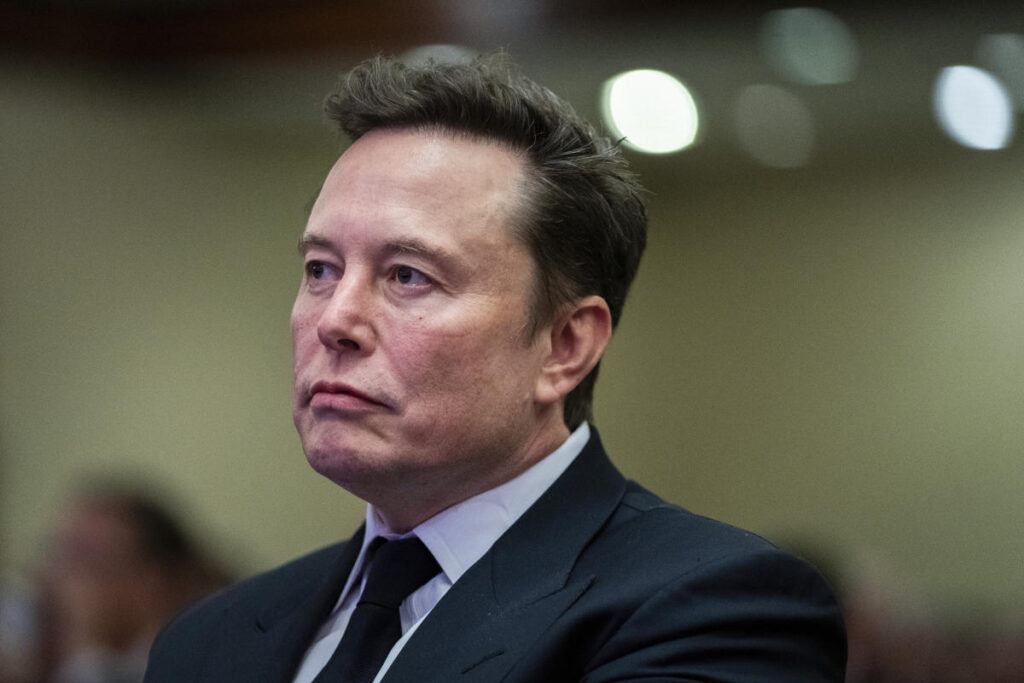In a significant move within the U.S. Capitol, billionaire Elon Musk and entrepreneur Vivek Ramaswamy are set to meet with legislators to discuss the ambitious plans of President-elect Donald Trump for reorganizing the federal government. Appointed to lead the Department of Government Efficiency, Musk and Ramaswamy are tasked with the formidable goals of reducing the federal workforce, eliminating government programs, and slashing regulations. This initiative is part of Trump’s broader “Save America” strategy for a prospective second term. Republican Representative Marjorie Taylor Greene, who is slated to chair a House Oversight subcommittee, expressed optimism about the undertaking, suggesting it could lay a solid foundation for their efforts to streamline governmental operations.
Historical precedents indicate that efforts aimed at shrinking the federal government typically encounter significant resistance, particularly when such initiatives threaten cherished programs that many Americans rely upon for critical services—including healthcare, military funding, and job security. However, under Trump’s leadership, Musk and Ramaswamy plan to employ a more aggressive strategy, deploying lessons taken from their extensive business experiences and aiming to reshape government operations through a concerted proposal known as Project 2025. The duo has expressed readiness to collaborate closely with the White House’s Office of Management and Budget, spearheaded by Russ Vought, who has previously been pivotal in budget cuts.
The presence of Musk and Ramaswamy on Capitol Hill marks a crucial moment for their agenda, with both encouraged by House Speaker Mike Johnson to engage in discussions with lawmakers regarding their plans. Representative Aaron Bean, a member of the newly formed DOGE caucus—a coalition of more than 50 Republicans and two Democrats—has expressed eagerness to kickstart the efforts to identify and eliminate wasteful spending. As a part of these initiatives, Bean plans to establish a system for constituents to report inefficiencies and a publicly visible scoreboard tracking cuts made to federal positions and agencies.
Despite lacking direct public service experience, Musk and Ramaswamy’s wealth and drive have made them significant figures in Trump’s vision. Musk has been notably influential, financially supporting efforts to mobilize voters and transform social media platforms to better align with Trump’s supporter base. Notably, the duo is not officially part of the government and will not receive compensation for their roles, avoiding typical governmental regulations and scrutiny that accompanies federal positions. Their informal advisory panel, termed DOGE, raises concerns among good-government advocates who stress the importance of transparency and equitable representation in the decision-making process, especially when proposing substantial budget cuts.
Currently, the federal budget of over $6 trillion is a critical point of focus, with a deficit hitting $1.8 trillion this year—an unprecedented figure that has not been seen since the Clinton administration over two decades ago. Republican lawmakers have criticized what they interpret as excessive spending, particularly on programs that enjoy broad public support, while Democrats often point to tax reductions from prior Republican administrations as contributing factors to the rising deficit. The Congressional Budget Office reported that public outlays accounted for 23.4% of the gross domestic product this year, contrasting with a historical average of 21.1%.
Given this context, some lawmakers express skepticism about the feasibility of proposed cuts. Notably, Representative Ro Khanna has voiced interest in having Musk testify about the substantial defense budget and encouraged scrutiny of potential inefficiencies there as well. However, Khanna remains unconvinced about the viability of far-reaching cuts to programs that assist vulnerable populations, warning that any drastic reductions risk political backlash. The dynamics surrounding Musk and Ramaswamy’s aggressive proposals for government efficiency will undoubtedly unfold against a backdrop of polarized political sentiment and longstanding public reliance on federal programs.

